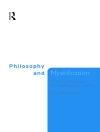This book endeavors to fill the conceptual gap in theorizing about embodied cognition. The theories of mind and cognition which one could generally call "situated" or "embodied cognition" have gained much attention in the recent decades. However, it has been mostly phenomenology (Heidegger, Merleau-Ponty, etc.), which has served as a philosophical background for their research program. The main goal of this book is to bring the philosophy of classical American pragmatism firmly into play. Although pragmatism has been arguably the first intellectual current which systematically built its theories of knowledge, mind and valuation upon the model of a bodily interaction between an organism and its environment, as the editors and authors argue, it has not been given sufficient attention in the debate and, consequently, its conceptual resources for enriching the embodied mind project are far from being exhausted. In this book, the authors propose concrete subject-areas in which the philosophy of pragmatism can be of help when dealing with particular problems the philosophy of the embodied mind nowadays faces – a prominent example being the inevitable tension between bodily situatedness and the potential universality of symbolic meaning.
Matthias Jung & Roman Madzia
Pragmatism and Embodied Cognitive Science [PDF ebook]
From Bodily Intersubjectivity to Symbolic Articulation
Pragmatism and Embodied Cognitive Science [PDF ebook]
From Bodily Intersubjectivity to Symbolic Articulation
قم بشراء هذا الكتاب الإلكتروني واحصل على كتاب آخر مجانًا!
لغة الإنجليزية ● شكل PDF ● صفحات 312 ● ISBN 9783110480238 ● محرر Matthias Jung & Roman Madzia ● الناشر De Gruyter ● نشرت 2016 ● للتحميل 3 مرات ● دقة EUR ● هوية شخصية 6586989 ● حماية النسخ Adobe DRM
يتطلب قارئ الكتاب الاليكتروني قادرة DRM












